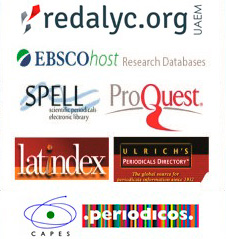ATTITUDINAL BACKGROUND OF DYNAMIC CAPABILITIES
DOI:
https://doi.org/10.14210/alcance.v29n1(Jan/Abr).p105-121Keywords:
Dynamic capabilities. attitudinal antecedents. individual capabilities. collective behaviors.Abstract
Objective: The main objective was to identify the attitudinal antecedents of dynamic capacities. For this, we used a method on grounded theory. Design / methodology / approach: As strategies for data collection, we selected oral history of thematic life interviews and in-depth interviews. The method covered constant comparisons and the processes of open, axial, and selective coding. Results: It was possible to conclude, from the substantive theory that emerged from the research field, that individual capacities underpinned the intrapreneurial attitude of managers of innovation projects. These capacities are associated with organizational capacities of perception (self-knowledge, autonomy, emotional evaluation, detail and initiative), apprehension (positive perspective, abstraction, critical analysis, emotional control, creativity, satisfaction with learning and strategic vision) and reconfiguration (argumentation, self-confidence, communication, discipline, empathy, active listening, flexibility, dealing with pressure, resistance to frustrations and systemic vision). The aggregate analysis revealed emerging cognitive and emotional elements, which interrupted the routine aspects of project management, substantiating the intrapreneurial attitude of the managers participating in this study. Originality / value: The main contribution of this study is the identification of individual capacities and collective behaviors that act as attitudinal triggers for the organizational capacities of perception, apprehension and reconfiguration of pro-innovation resources. Potentially, this contribution can be used to conduct recruitment/selection and training processes for innovation project managers.References
Adner, R., & Helfat, C. E. (2003). Corporate effects and dynamic managerial capabilities. Strategic Management Journal, 24(10), 1011-1025.
Alvarenga, M. A., & da Costa, P. R. (2019). Gestores de projetos de inovação e trajetória de carreira sob a perspectiva proteana. Revista de Empreendedorismo, Negócios e Inovação, 4(1), 27-41.
Alvarenga, M. A., & da Costa, P. R. (2020). Intraempreendedorismo: Uma Proposta para Reorganização da Literatura. Revista de Empreendedorismo, Negócios e Inovação, 5(1), 57-80.
Antoncic, B., & Hisrich, R. D. (2003). Clarifying the intrapreneurship concept. Journal of Small Business and Enterprise Development, 10(1),7-24.
Aragón, C. J. A., & Sharma, S. (2003). A contingent resource-based view of proactive corporate environmental strategy. Academy Of Management Review, 28(1), 71-88.
Bandeira-de-Mello, R. (2002). Uma teoria substantiva da adaptação estratégica a ambientes turbulentos e com forte influência governamental: o caso das pequenas construtoras de edificações. Tese de doutorado, Universidade Federal de Santa Catarina, Florianópolis, SC, Brasil.
Bandeira-de-Mello, R., & Cunha, C. J. C. A. (2006). Grounded theory. In Godoi, C. K., Bandeira-de-Mello, R., & Silva, A. B. (Orgs.). Pesquisa qualitativa em estudos organizacionais: paradigmas, estratégias e métodos. São Paulo: Saraiva.
Bendig, D., Strese, S., Flatten, T. C., da Costa, M. E. S., & Brettel, M. (2018). On micro-foundations of dynamic capabilities: a multi-level perspective based on CEO personality and knowledge-based capital. Long Range Planning, 51(6), 797-814.
Bock, A. J., Opsahl, T., George, G., & Gann, D. M. (2012). The effects of culture and structure on strategic flexibility during business model innovation. Journal of Management Studies, 49(2), 279-305.
Bock, A. M. B., Furtado, O., & Teixeira, M. L. T. (2002). Psicologias: uma introdução ao estudo da psicologia. São Paulo: Saraiva.
Böhm, A. (2004). Theoretical coding: text analysis in grounded theory. In Flick, U., von Kardoff, E., & Steinke, I. (Eds.). A companion to qualitative research. London: Sage.
Carvalho, M. M., & Rabechini, R., Jr. (2011). Fundamentos em gestão de projetos: construindo competências para gerenciar projetos. São Paulo: Atlas.
Corbin, J., & Strauss, A. (1990). Grounded theory research: procedures, canons and evaluative criteria. Zeitschrift für Soziologie, 19(6), 418-427.
Dobelin, S. (2015). Os efeitos da adoção de práticas de inovação gerencial sobre a flexibilidade organizacional. Tese de doutorado, Universidade de São Paulo, Ribeirão Preto, SP, Brasil.
Gavetti, G. (2012). Perspective: Toward a behavioral theory of strategy. Organization Science, 23(1), 267-285.
Helfat, C. E., & Peteraf, M. A. (2015). Managerial cognitive capabilities and the microfoundations of dynamic capabilities. Strategic Management Journal, 36(6), 831-850.
Herrmann, J. D., Sangalli, L. C., & Teece, D. J. (2017). Dynamic capabilities: fostering an innovation-friendly environment in Brazil. Revista de Administração de Empresas, 57(3), 283-287.
Hitt, M. A., Ireland, R. D., & Hoskisson, R. E. (2007). Strategic management: competitiveness and globalization: concepts. Mason: Thomson South-Western.
Hodgkinson, G. P., & Healey, M. P. (2011). Psychological foundations of dynamic capabilities: reflexion and reflection in strategic management. Strategic Management Journal, 32(13), 1500-1516.
Instituto Brasileiro de Geografia e Estatística (2012). Demografia das Empresas: 2010, Rio de Janeiro, RJ, Gerência do Cadastro Central de Empresas. Recuperado em 20 de agosto de 2017, de http://biblioteca.ibge.gov.br/visualizacao/livros/liv61536.pdf.
Kerzner, H. (2011). Gerenciamento de projetos: uma abordagem sistêmica para planejamento, programação e controle. São Paulo: Blücher.
Mahringer, C. A., & Renzl, B. (2018). Entrepreneurial initiatives as a microfoundation of dynamic capabilities. Journal of Accounting & Organizational Change, 14(1), 61-79.
Mattos, P. L. C. L. (2006). Análise de entrevistas não estruturadas: da formalização à pragmática da linguagem. In Godoi, C. K., Bandeira-de-Mello, R., & Silva, A. B. (Orgs.). Pesquisa qualitativa em estudos organizacionais: paradigmas, estratégias e métodos. São Paulo: Saraiva.
Meihy, J. C. S. B., & Ribeiro, S. L. S. (2011). Guia prático de história oral: para empresas, universidades, comunidades, famílias. São Paulo: Contexto.
Meirelles, D. S., & Camargo, A. A. B. (2014). Capacidades dinâmicas: o que são e como identificá-las?. Revista de Administração Contemporânea, 18, 41-64.
Mendonça, A. T. B. B., Remonato, R. L. C., Maciel, C. O., & Balbinot, Z. (2013). Grounded theory. In Takahashi, A. R. W. (Org.). Pesquisa qualitativa em administração: fundamentos, métodos e usos no Brasil. São Paulo: Atlas.
Mudalige, D., Ismail, N. A., & Malek, M. A. (2019). Exploring the role of individual level and firm level dynamic capabilities in SMEs’ internationalization. Journal of international Entrepreneurship, 17(1), 41-74.
Nobre, F. S., Tobias, A. M., & Walker, D. S. (2011). Uma visão da empresa baseada em habilidades: contextos estratégicos e contingenciais. Revista de Administração Contemporânea, 15(3), 413-432.
Pavlou, P. A., & El Sawy, O. A. (2011). Understanding the elusive black box of dynamic capabilities. Decision Sciences, 42(1), 239-273.
Robbins, S. P. (2005). Comportamento Organizacional (11a ed.). São Paulo: Pearson.
Sabbag, P. Y. (2013). Gerenciamento de projetos e empreendedorismo. São Paulo: Saraiva.
Salvato, C., & Vassolo, R. (2018). The sources of dynamism in dynamic capabilities. Strategic Management Journal, 39(6), 1728-1752.
Teece, D. J. (2007). Explicating dynamic capabilities: the nature and microfoundations of (sustainable) enterprise performance. Strategic Management Journal, 28(13), 1319-1350.
Teece, D. J., & Pisano, G. (1994). The dynamic capabilities of firms: an introduction. Industrial and Corporate Change, 3(3), 537-556.
Teece, D. J., Pisano, G., & Shuen, A. (1997). Dynamic capabilities and strategic management. Strategic Management Journal, 18(7), 509-533.
Vergara, S. C. (1990). Tipo de pesquisa em administração. Cadernos EBAP, 50, 1-9.
Wilden, R., Devinney, T. M., & Dowling, G. R. (2016). The architecture of dynamic capability research identifying the building blocks of a configurational approach. Academy of Management Annals, 10(1), 997-1076.
Wilden, R., Gudergan, S. P., Nielsen, B. B., & Lings, I. (2013). Dynamic capabilities and performance: strategy, structure and environment. Long Range Planning, 46(1-2), 72-96.
Williamson, J. M., Lounsbury, J. W., & Han, L. D. (2013). Key personality traits of engineers for innovation and technology development. Journal of Engineering and Technology Management, 30(2), 157-168.
Wójcik, P., & Ciszewska-Mlinarič, M. (2020). The impact of cognitive and behavioral factors on the export performance: a dynamic capabilities perspective. European Business Review, 33(3), 427-449.
Downloads
Published
Issue
Section
License
Copyright (c) 2022 Revista Alcance

This work is licensed under a Creative Commons Attribution 4.0 International License.
In this statement of responsibility, I/we certify that I/we participated in the preparation of the attached article, thus making my/our responsibility for its content public. I/we declare that we have not omitted any links or financing agreements between me/us and entities and/or institutions that may have an interest in the publication of this article. I/we certify that the article is original and the work, either in total or in part, or any other work of my/our authorship with substantially similar content, has not been nor will be sent in any format (printed or electronic) to another periodical while its publication is being considered by Revista Alcance. In this consent form, the associated authors give permission to Revista Alcance, in the case of approval by its Editorial Board, to publish the attached article in electronic copy in a regular edition of the journal and to load it to the database.

